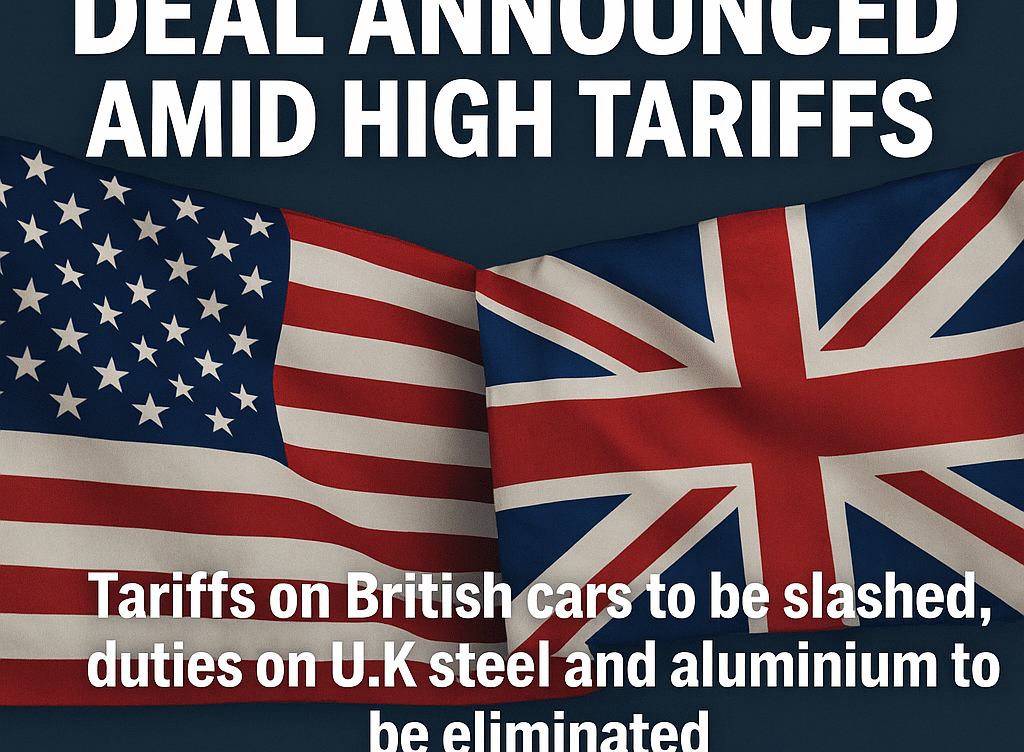
A Strategic Win or Symbolic Gesture? Decoding the U.S.-U.K. Trade Deal Amid Trump’s Tariff Offensive
The newly announced U.S.-U.K. trade agreement, unveiled on May 8, 2025, is more than a bilateral economic arrangement—it’s a critical maneuver in Donald Trump’s broader tariff-driven trade strategy. The deal, which includes steep U.S. tariff reductions on British cars and full removal of duties on U.K. steel and aluminum, is being heralded by both sides as a breakthrough. Yet the implications stretch far beyond ceremonial diplomacy.
A Tactical Carve-Out in a Global Tariff Campaign
Trump’s renewed tariff war, which notably includes the recent cancellation of the $800 de minimis exemption on Chinese imports and sweeping penalties on global suppliers, has raised concerns over trade isolationism. In this context, the U.S.-U.K. deal represents a deliberate exception to that hardline policy. The tariff relief for the U.K.—particularly in sensitive sectors like autos and metals—signals that the Trump administration is open to selective de-escalation where it aligns with strategic or political interests.
By softening trade terms with Britain, Trump accomplishes two things:
- He demonstrates flexibility to U.S. allies, countering criticism that his tariff strategy is purely punitive.
- He pressures other nations—particularly the EU and China—to come to the negotiating table or risk being left out of preferential trade frameworks.
Impact on the Broader Trade War
From a geopolitical standpoint, this agreement weakens the united front of traditional U.S. allies who might otherwise band together against American tariffs. It shows that Washington can and will offer exemptions—for a price. In essence, Trump is using bilateral deals to fragment multilateral resistance and exert greater leverage over rivals like China.
Economically, the U.K. agreement helps cushion the blow of Trump’s global tariffs on American businesses and consumers by ensuring stable trade flows with at least one major partner. U.S. automakers, ethanol producers, and aerospace firms benefit from improved market access, while American consumers may see slight price relief in goods imported from Britain.
Conclusion: A Calculated Exception, Not a Retreat
The U.S.-U.K. trade agreement does not mark a shift away from Trump’s protectionist posture—it reinforces it. By rewarding compliance and alignment with favorable trade terms, Trump is redefining global commerce around bilateral loyalty and strategic value. For other trading partners—especially China—this deal sends a clear message: concessions buy relief, and alignment earns access.
In short, this deal is not a retreat from the tariff war, but a reinforcement of its logic—cooperate and prosper, or resist and pay.
